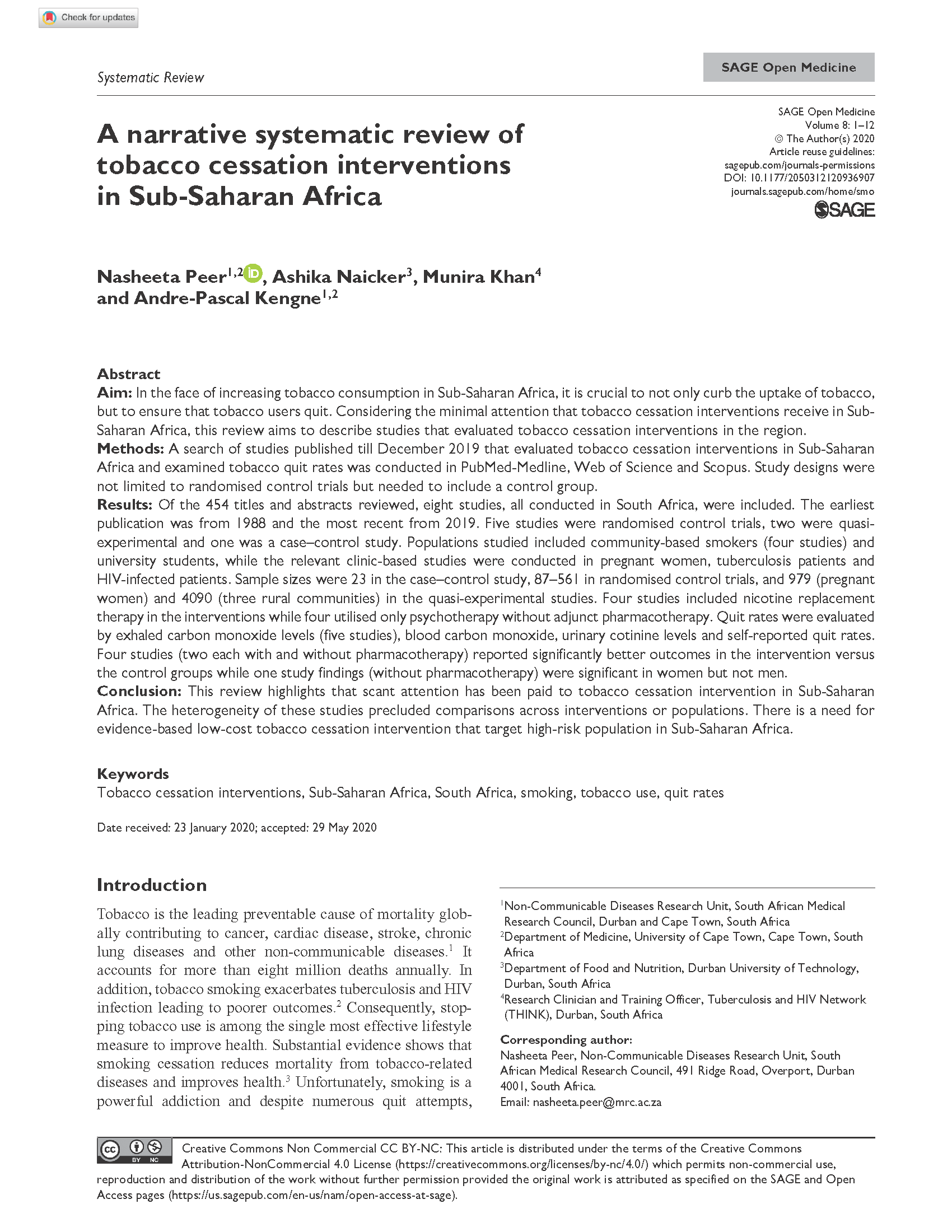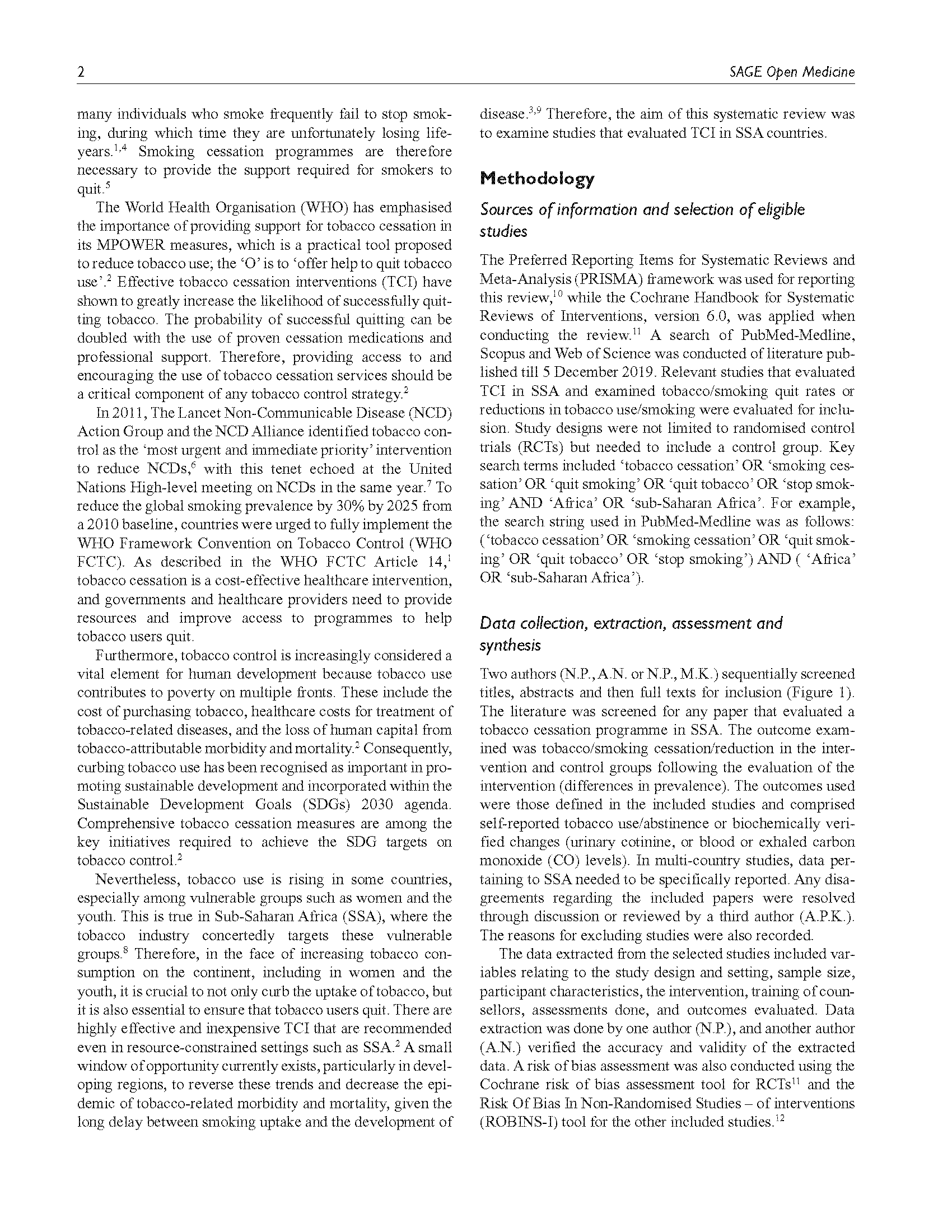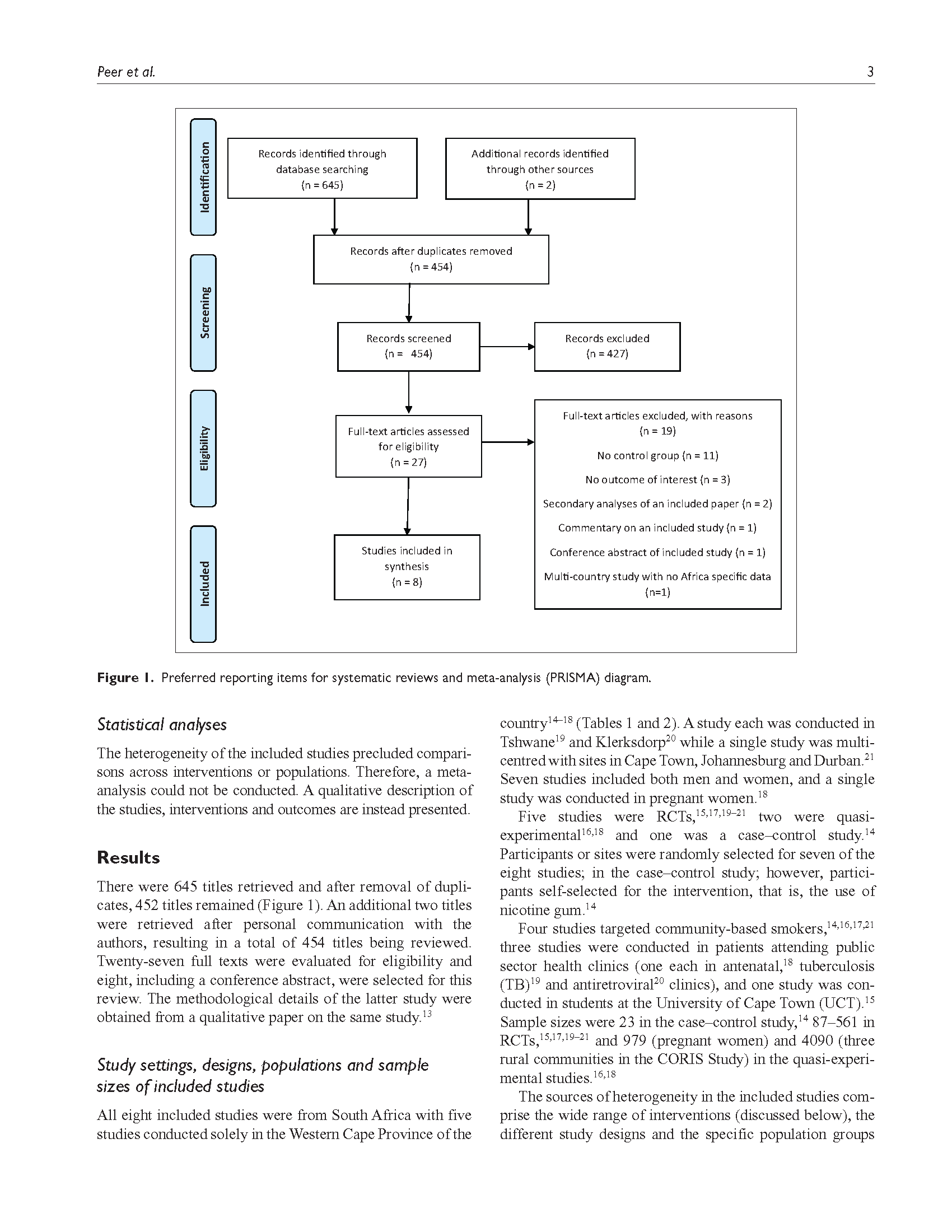Published: 29 May 2020
Authors: Nasheeta Peer1,2 , Ashika Naicker3 , Munira Khan4 and Andre-Pascal Kengne1,2
Journal: SAGE Open Medicine Volume 8: 1–12
ABSTRACT
Aim: In the face of increasing tobacco consumption in Sub-Saharan Africa, it is crucial to not only curb the uptake of tobacco, but to ensure that tobacco users quit. Considering the minimal attention that tobacco cessation interventions receive in Sub- Saharan Africa, this review aims to describe studies that evaluated tobacco cessation interventions in the region.
Methods: A search of studies published till December 2019 that evaluated tobacco cessation interventions in Sub-Saharan Africa and examined tobacco quit rates was conducted in PubMed-Medline, Web of Science and Scopus. Study designs were not limited to randomised control trials but needed to include a control group.
Results: Of the 454 titles and abstracts reviewed, eight studies, all conducted in South Africa, were included. The earliest publication was from 1988 and the most recent from 2019. Five studies were randomised control trials, two were quasiexperimental and one was a case–control study. Populations studied included community-based smokers (four studies) and university students, while the relevant clinic-based studies were conducted in pregnant women, tuberculosis patients and HIV-infected patients. Sample sizes were 23 in the case–control study, 87–561 in randomised control trials, and 979 (pregnant women) and 4090 (three rural communities) in the quasi-experimental studies. Four studies included nicotine replacement therapy in the interventions while four utilised only psychotherapy without adjunct pharmacotherapy. Quit rates were evaluated by exhaled carbon monoxide levels (five studies), blood carbon monoxide, urinary cotinine levels and self-reported quit rates. Four studies (two each with and without pharmacotherapy) reported significantly better outcomes in the intervention versus the control groups while one study findings (without pharmacotherapy) were significant in women but not men.
Conclusion: This review highlights that scant attention has been paid to tobacco cessation intervention in Sub-Saharan Africa. The heterogeneity of these studies precluded comparisons across interventions or populations. There is a need for evidence-based low-cost tobacco cessation intervention that target high-risk population in Sub-Saharan Africa.
Keywords: Tobacco cessation interventions, Sub-Saharan Africa, South Africa, smoking, tobacco use, quit rates
Affiliations: 1: Non-Communicable Diseases Research Unit, South African Medical Research Council, Durban and Cape Town, South Africa 2: Department of Medicine, University of Cape Town, Cape Town, South Africa 3: Department of Food and Nutrition, Durban University of Technology, Durban, South Africa 4: Research Clinician and Training Officer, Tuberculosis and HIV Network (THINK), Durban, South Africa



